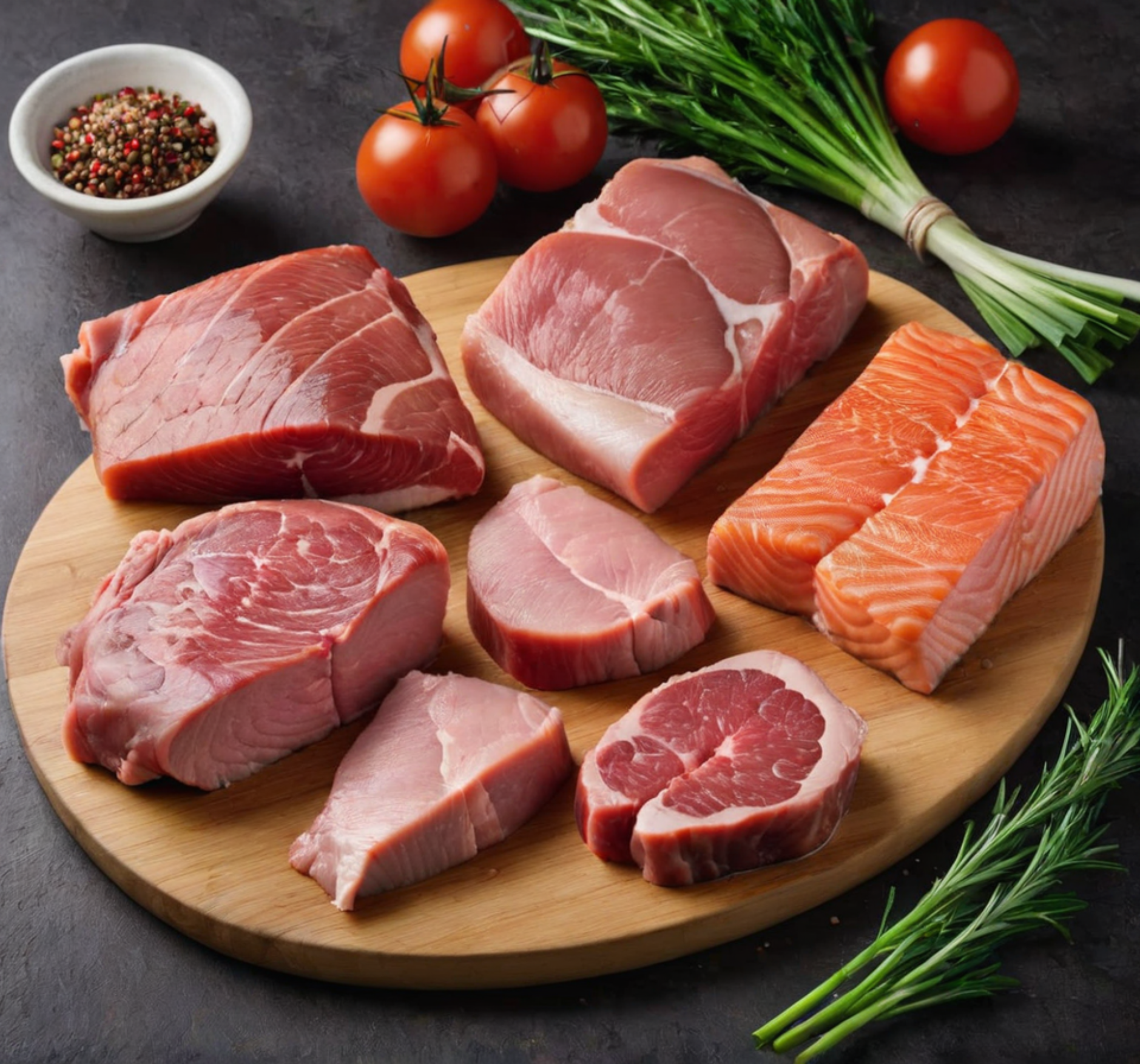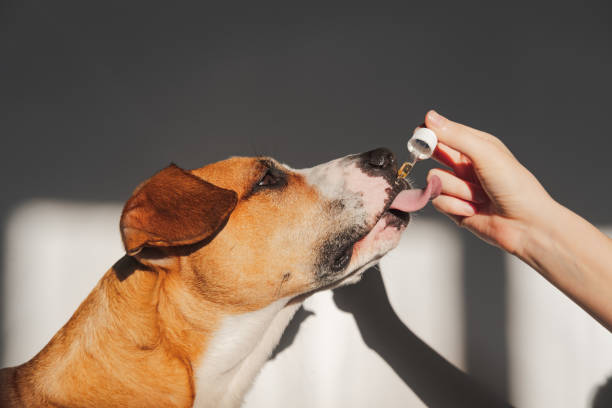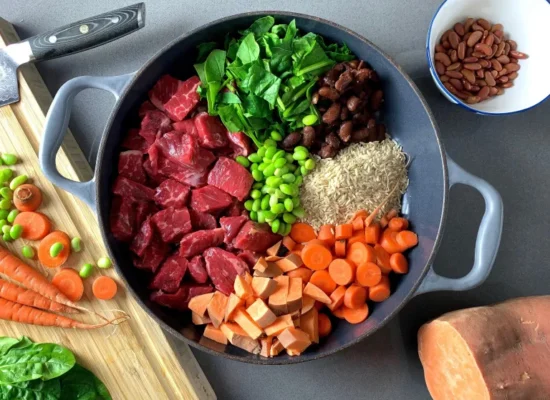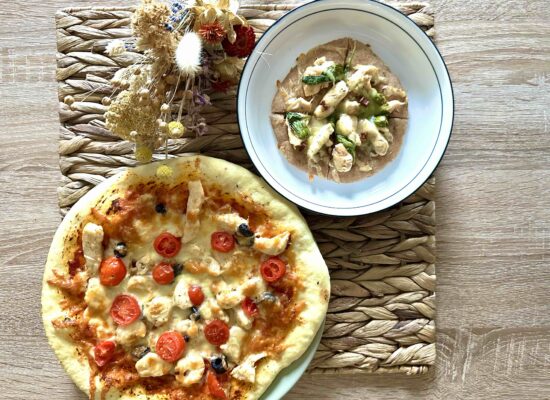As rookie dog owners, we often find ourselves cornered as in what to feed our dogs. Should it be a raw diet? Which dry food should we choose? How to make homemade dog food recipes, what ingredients should we use? The opportunities are endless, but we’ve got to start somewhere even if it means some experimenting to do. The best diet for dogs is a term you simply cannot generalize, as something may work for others might not be the best for your pup. Finding the best path might take months and months of research and constant attempts at new things. Because which one of us wouldn’t want our furbabies to live as long as humanly – or more like caninely – possible? But let’s see the guidelines for now.
What protein sources to use?
Even more than we do, our dogs require protein as a vital base for their bodies, therefore high-quality animal-based proteins such as turkey, beef, and fish are highly advised to use as such. They all supply essential amino acids vital for muscle development, immune function, and overall well-being. The reason I didn’t mention chicken as such – however lean and rich in protein it may be – is because nowadays more and more dogs develop severe allergies and harsh immune reactions. The protein found in specifically cooked or processed chicken or any poultry can often be at fault behind the reaction. On top of that, but unfortunately it also applies to all sources of meat, more and more dogs develop some sort of sensitivity to chemicals, growth hormones and steroids used in large scale livestock ‘production’. From personal experience I can tell the highest rate in our dog community is chicken allergy, besides gluten sensitivity. Whichever meat we choose, it’s important to ensure that the protein source is lean, avoiding excessive fat content that might lead to weight-related or cardiovascular issues, and also if we have the opportunity, buy the ingedients from small scale farmers.

The benefits of vegetables
While our pups are primarily carnivores, vegetables and even fruits can play a crucial role in providing essential vitamins, minerals, and fiber. Adding various vegetables like carrots, broccoli, and sweet potatoes – and many more, we’ll dive into that later – into their diet can contribute to a perfect balance. These veggies offer antioxidants that support the immune system and fiber to aid digestion. Steaming or lightly cooking vegetables is recommended to enhance their digestibility, but still preserve majority of their vitamin content.
Carbs naturally
Carbohydrates are a valuable energy source, as they can contribute to our dogs’ activity. Opting for whole grains such as brown rice or quinoa can provide solid energy without causing spikes in blood sugar. Some dogs may have sensitivities to grains, in which case grain-free options like sweet potatoes or moderately legumes can be considered, but oats are also a great option as they comply with a sensitive stomach as well.
Does it smell… fishy? You guessed it right!
Incorporating healthy fats into a dog’s diet is essential for a shiny coat, joint health, and cognitive function. Fish oil – we mostly prefer salmon oil -, rich in omega-3 fatty acids is a fantastic supplement to promote a shiny coat and support cardiovascular health. It’s very important to note, that fish oil should be fed as a supplement periodically, as there is a high chance the polyunsaturated fatty acids deplete vitamin-E in your dog’s system. We usually do a 3 months-long treatment at the time, which gradually increasing to the proper amount of daily dosage should not cause diarrhea, although some pups may be prone to it nevertheless.

Supplements – important and cautionary
Supplements for dogs can serve as the cherry on top of a well-balanced diet. Glucosamine and chondroitin supplements can be beneficial for joint health, especially in senior dogs or those prone to joint issues. It can be exceptionally beneficial post-surgery or if your furbaby suffers from hip dysplasia. It’s important to note, though, that if your dog is allergic to seafood, there is a great possibility that sensitivity will be triggered by certain shellfish-based glucosamine products too, so keep an eye out for shellfish-free versions.
Probiotics can contribute to a healthy gut flora, aiding digestion and boosting the immune system, as well as relieving common anal gland issues, at least making visits to the vet less frequent.
Get out those puppy Stanley cups and hydrate!
Amidst the focus on solid foods, never underestimate the importance of hydration. Providing a constant supply of fresh, clean water is vital for maintaining overall health. That’s exactly why whenever we need help from our family, puppysitting our precious one, we always emphasize on the importance of him having enough water at all times, no matter what. There could be floods, earthquakes, monsoons, but his bowl has to have clean water in it!
All in all, everything is equally important in our dog’s diet, which means our job isn’t over by finding the right type of meat. Next up we’re going to explore how you can make homemade dog food without having to empty out your pockets, or even to do this all while not having to divert from cooking for the human part of your family!






